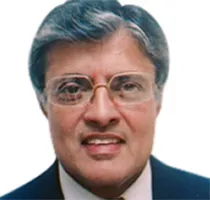
The recent attacks on Africans in various parts of India has caused a huge embarrassment for the Government of India. The killing of Congolese national Masonda Ketada Oliver in Delhi on May 22 followed by assaults on other Africans in Hyderabad and again in Delhi hit the headlines in Indian and international newspapers. It is more than a diplomatic issue. People both in India and abroad are asking: “Is Indian society racist?”
The timing of the events could not have been worse with the Indian Council for Cultural Relations (ICCR) planning their annual Africa Day celebrations on May 26. There was the fear that the African envoys would not participate. It would have been a totally understandable act since they were under pressure to show their respective governments the seriousness they were attaching to the developments. But, they never used the term “boycott” which appeared in the media. All that they said was that they would not be able to celebrate since they were in mourning.
The Government of India also acted quickly by reaching out to the envoys with suitable gestures and made sure that the event was held albeit on a lower key. Another crisis in the form of a protest rally by the African students on May 31 was averted in the last minute after assurances of protection by External Affairs Minister Sushma Swaraj. Nonetheless, these are, at best, fire-fighting measures. The problem is far from being resolved and there is need for sustained action.
There are three main aspects to the issue: perception, mindset and deterrence.
< style="color: #163449;">Perception and sensitivity
A general perception exists that there is growing Afro-phobia in India. The numerous incidents over the last few years only adds to this perception. It is not only the < style="color: #163449;">reported attacks that create the perception: add to that the unreported racial insults and slights that many Africans face on a daily basis.
Lack of sensitivity to the events makes matters worse. Attempts to downplay the event with comments like these are minor scuffles or such things happen all over the world aggravate the situation. Efforts to explain the incident by resorting to technicalities betrays total insensitivity. For example, after one such incident in one of the states a few years ago, a high-up in Delhi smugly remarked that law and order in India is a state subject. Is that the answer one should be giving to the parents who have lost a son?
Bringing political and economic factors in India-Africa relations into the discourse is also quite inappropriate. Some have argued that such incidents will affect our trade and economic relations and chances of becoming a Permanent Member of United Nations Security Council (UNSC). This again gives the wrong message. What should be stressed is that, in this day and age, racist attitude is very wrong and totally unacceptable, irrespective of other factors.
< style="color: #163449;">Mindset
Changing the mindset is a tougher and longer term effort. It is particularly so in a society which is becoming more and more colour conscious. The problem is much worse compared to what it was two or three decades ago. India could arguably be the only country where leave alone women, even men are crazy about whitening creams and celebrities endorse the products. The craze for white skin by the elite and the upwardly mobile middle class is driven by the booming cosmetic industry. The attitude is unexplainable in a country where the most popular God, Krishna, after whom Gopis used to run and who gave the most sacred of the religion’s scriptures (Bhagavat Gita) was dark. And so was the most beautiful lady in Mahabharat, Draupadi, around whom the epic revolves.
< style="color: #163449;">Deterrence
This is the most doable and practical tool that the government has. But, is it being used efficiently? After every tragic incident, promises are made, a few FIRs are registered, a few arrests are made but nothing more is known. Either these are not followed up to the logical end or there is not enough publicity. Either way, it doesn’t solve the problem. Speedy trial and punishment is the only way. Certainty of punishment is as important a deterrent as the quantum of punishment. Publicity about the action taken has two advantages: one, it assuages the African community, and two, it sends the right message to potential attackers. The clear message that should get across is that anybody indulging in such attacks will have a very heavy price to pay. Let us take such cases in the last two years. Can the government make public the action taken in these cases to clear the air?
< style="color: #163449;">Need for building trust
The media has done a remarkable job in bringing the tragic events to national attention. Conversations with the African envoys and the community reveal that they are very appreciative of media’s efforts to keep the issue in focus. While the media will have to expand its good work in also educating and creating awareness, there are other efforts needed, which may require some out-of-the-box thinking. Indian students and faculty in universities and colleges where there are significant number of Africans have to take special efforts to reach out by having joint cultural and sports activities. Another way to build trust is to involve peoples’ representatives. The MLAs and MPs of constituencies with a large African presence could create platforms to bring them and the Indians together.
Historian Jacques Barzun once remarked that “to see ourselves as others see us is a rare and valuable gift, without a doubt. What is rarer and far more useful is to see others as they see themselves.” Can the perpetrators of such acts do this?
The views expressed above belong to the author(s). ORF research and analyses now available on Telegram! Click here to access our curated content — blogs, longforms and interviews.




 PREV
PREV


